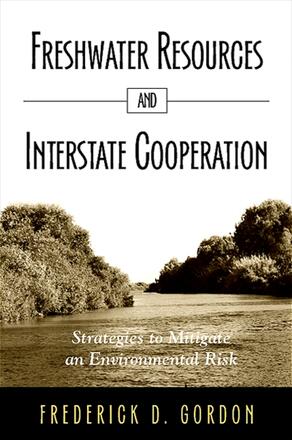
Freshwater Resources and Interstate Cooperation
Strategies to Mitigate an Environmental Risk
Alternative formats available from:
Examines state cooperation over increasingly scarce water resources.
Description
Reports from the United Nations suggest that as much as forty percent of the global population could be without adequate freshwater supplies by 2015, leading some experts to predict that future wars will be fought over water rather than oil. Yet to date, most nation-states have been able to develop viable freshwater agreements to share this precious resource. Frederick D. Gordon examines how effective these accords are in sharing and redistributing water and whether they are sufficient to meet the increasing threat of water scarcity. Using an innovative ranking system, he assesses the significance of cooperation within both bilateral and multilateral accords, including the Israeli-Palestinian Interim Accords of 1993–1995, the Lesotho Highlands Water Treaty of 1986, and the 1994 Convention on Cooperation for the Protection and Sustainable Use of the River Danube. Gordon identifies central factors and stakeholders that are necessary for mitigating the risk of conflict and presents a template for understanding how state behavior can manage and sustain regional water resources.
Frederick D. Gordon teaches Environmental Law and Policy at California Lutheran University.
Reviews
"Fresh water, long taken for granted, is rapidly becoming one of the world's most pressing environmental problems … Freshwater Resources and Interstate Cooperation is a welcome addition to the literature." — H-Net Reviews
"This book addresses a compelling problem for humanity in the twenty-first century and will be valuable for graduate classes and the international water policy community like World Bank analysts." — John M. Whiteley, University of California at Irvine